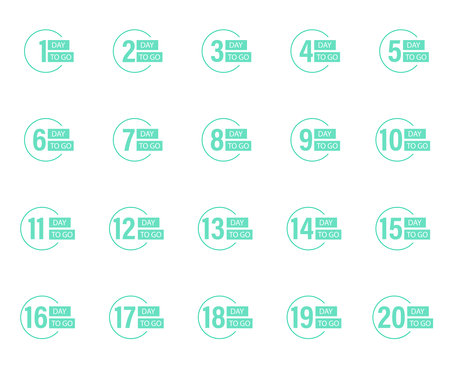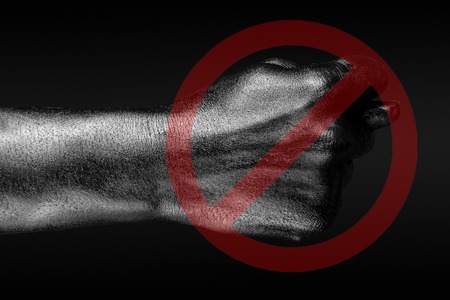Unpacking the Language: Where Did Good and Bad Hands Come From?
When we sit down at a table—be it for poker, bridge, or any of the traditional British card games—the terms “good hand” and “bad hand” slip off the tongue with remarkable ease. But where did these seemingly objective labels originate? The roots of this language are deeply embedded in the rich tapestry of British gaming history, shaped by centuries of parlour games, gambling houses, and colloquial banter. In the smoky backrooms of Victorian England or at the lively tables of modern-day pubs, players have long sought to make sense of their fortunes through such binaries. The phraseology was never just about the cards themselves; it mirrored broader social attitudes towards luck, skill, and class. Over time, poker slang further entrenched these expressions in our collective psyche—think of phrases like “holding rubbish” or “a proper belter.” These linguistic habits subtly influence how we perceive not only our chances at the table but also our personal agency and self-worth as players. By labelling hands as inherently good or bad, we reinforce a narrative that luck is fate and skill is static, rather than recognising the dynamic interplay that defines every round dealt.
2. Beyond Luck: The Rational Lens on Probability
For many British card players, the idea of a ‘good’ or ‘bad’ hand feels as instinctive as ordering a pint at your local. Yet, when we examine these concepts through the rational lens of probability theory, our assumptions quickly unravel. In games like bridge and pub poker—staples of British leisure—the label of ‘good’ or ‘bad’ often ignores the statistical realities that underpin every deal.
Challenging Intuition with Probability
At its core, probability theory asks us to look past gut feelings and consider the actual likelihood of outcomes. Take bridge, for example: while you might feel disheartened by a low-scoring hand, experienced players know that even so-called ‘bad’ hands can swing fortunes with clever bidding and partnership play. Similarly, in pub poker, a pair of twos might seem hopeless until you factor in table position, betting patterns, and the unpredictability of opponents after a few rounds of bitter.
Comparing Perceived Value vs. Probabilistic Value
| Game | Perceived Good Hand | Probability-Informed Perspective |
|---|---|---|
| Bridge | Aces and face cards | Depends on suit distribution, vulnerability, and partnership strategy |
| Pub Poker | Pocket Aces (AA) | High odds pre-flop but vulnerable post-flop; context matters |
| Pub Poker | Low pairs (e.g., 2-2) | Undervalued yet can win big if odds align—especially against overconfident punters |
The Power of Context in British Card Culture
This probabilistic perspective is not just academic—it’s woven into the fabric of British card culture. From the hushed calculations behind a bridge club’s green baize to friendly banter at the pub’s backroom poker table, understanding probability means seeing beyond surface-level luck. It encourages strategic risk-taking and appreciation for nuance, rather than moaning about one’s fate after a dodgy deal.

3. Psychology at Play: Mental Shortcuts and Biases
If we peel back the layers of our card-playing psyche, it becomes clear that our compulsion to label hands as ‘good’ or ‘bad’ owes a great deal to those marvellously unreliable cognitive shortcuts—biases—that colour all human decision-making. Our minds, eager for efficiency and ever so slightly lazy, tend to gravitate towards easy categorisations. This is what psychologists call “heuristics”—handy rules of thumb that help us make sense of complex situations without blowing a mental gasket. In the context of card games, this means we’re often seduced by the idea that certain hands are innately fortunate or doomed, rather than acknowledging the shifting sands of probability and circumstance.
Take confirmation bias, for instance. If you win a round with a so-called “strong” hand, you’re likely to remember it fondly—perhaps even regaling your mates at the pub with tales of your strategic genius. Lose with a “weak” hand, however, and it’s all too easy to blame rotten luck, brushing aside any tactical missteps on your part. Then there’s outcome bias: the tendency to judge decisions based on their results rather than the soundness of the reasoning behind them. It’s classic British understatement to say, “Well, that didn’t quite go as planned,” when in truth we were led astray by our own mental blind spots.
Even the venerable gambler’s fallacy makes an appearance here—believing that after a run of poor hands, surely a ‘good’ one is due (as if the deck itself abides by some unwritten social contract). These biases don’t just shape our perception of cards; they reinforce the myth that some hands possess an inherent moral character. In true British fashion, perhaps we’d do well to treat such beliefs with a raised eyebrow and a wry smile—recognising them as charming quirks of human nature rather than gospel truths.
4. Context is King: When Bad Hands Win Big
While its tempting to dismiss certain hands as categorically “bad”, British gaming tables and card rooms are replete with tales that challenge this binary. Consider, for instance, the legendary 1988 Poker Final in Blackpool—often recounted in local pubs—where a seemingly hopeless hand of 7-2 off-suit clinched victory against all odds. This is not an isolated case; whether it’s bridge at a country club or a casual game of whist in a village hall, there are countless anecdotes where “bad” hands have outfoxed more traditional favourites.
The Role of Adaptability
What links these stories isn’t mere luck, but adaptability and acute situational awareness. Unlike the rigidly defined strategy books, seasoned British players frequently lean into the art of reading the room—spotting tells, exploiting overconfidence, or capitalising on an opponent’s distraction (perhaps brought on by one too many pints). These moments underscore a key lesson: context can transform even the weakest of starting points into a platform for triumph.
Anecdotes from Across Britain
| Location | Game | Bad Hand Outcome |
|---|---|---|
| London | Poker | Jack-high bluff wins against pocket kings due to clever table talk |
| Manchester | Bridge | A weak suit forces opponents into overbidding, leading to an unexpected set |
| Bristol | Whist | Low cards lead to victory when opponents misplay their trumps |
| Edinburgh | Poker | Unassuming pair of twos secures the pot after reading an opponent’s nervous twitch |
Situational Thinking Over Stereotypes
The real takeaway from these stories isn’t simply that luck favours the bold. Rather, it highlights how British card culture prizes wit, adaptability, and the ability to turn adversity into opportunity. “Bad” hands become less about their statistical weakness and more about what a player can do with them given the right context—a testament to the enduring British belief in making the best of what you’ve got.
5. A Modern Take: Reframing Card Game Wisdom in the UK
In today’s Britain, the way we approach card games is subtly shifting—mirroring larger trends in our cultural psyche. No longer do seasoned players simply bemoan their “bad luck” or praise the whims of fortune when dealt a seemingly “good hand.” Instead, a more nuanced and analytical mindset is taking root, echoing a broader national movement towards critical thinking and informed decision-making. This reframing is not confined to the green baize tables of Bridge clubs in Surrey or friendly poker nights in Manchester; it resonates with how Britons increasingly question received wisdom across all aspects of life. From scrutinising political rhetoric to evaluating media narratives, there’s an unmistakable appetite for evidence over superstition, logic over lore. The modern card player, much like the modern British thinker, recognises that success hinges on adaptability, strategic foresight, and the ability to read situations beyond surface impressions. Our collective embrace of this rational approach does more than improve our odds at the table—it reflects a society eager to interrogate myths and move beyond binary notions of “good” and “bad,” whether in hands dealt or challenges faced.
6. Practical Insights: What This Means For Your Next Game
As we cast aside the old chestnut of “good” and “bad” hands, what does this mean for your next shuffle and deal? It’s time to swap superstition for sharp thinking and leave playground legends at the door. Here are some actionable tips for card game enthusiasts keen to up their game with a distinctly British sense of pragmatism and wit.
Embrace the Odds, Not the Lore
First things first: get to grips with probability rather than relying on tales passed down at the pub. Take a moment before each game to remind yourself that every hand is independent; no amount of touching wood or crossing fingers will change the mathematics. If you’re not already familiar, brush up on basic odds – it’s far more reliable than any so-called lucky charm.
Focus On Strategy, Not Superstition
Resist the urge to label your cards as “dead certs” or “duds.” Instead, hone your strategic play. Assess your position, adapt your tactics, and observe your opponents’ behaviour – the real mark of a seasoned player lies in reading people and situations, not just cards. Play the long game and cultivate patience; rash decisions based on myths seldom pay off.
Stay Cool-Headed: Emotions Out, Logic In
It’s all too easy to let frustration or excitement cloud your judgement. When faced with what looks like a dodgy hand, don’t throw in the towel out of habit. Instead, evaluate your options objectively. Sometimes a hand dismissed as rubbish can be turned into a winner with cunning play and a bit of nerve – classic British understatement never goes amiss here.
Keep Learning: Reflect and Refine
No matter how many games you’ve played, there’s always room for improvement. After each session, take stock: which moves worked, which didn’t, and why? Swap stories (not superstitions) with fellow players and dissect outcomes logically. Continuous reflection will keep you ahead of those stuck chasing phantom “lucky hands.”
Bring It All To The Table
Ultimately, breaking free from the myth of “good” and “bad” hands invites you to enjoy card games on a richer level. Bring analysis, adaptability, and an open mind to every hand you’re dealt – and perhaps most importantly, relish the camaraderie and clever banter that are as much a part of British card culture as the games themselves.


